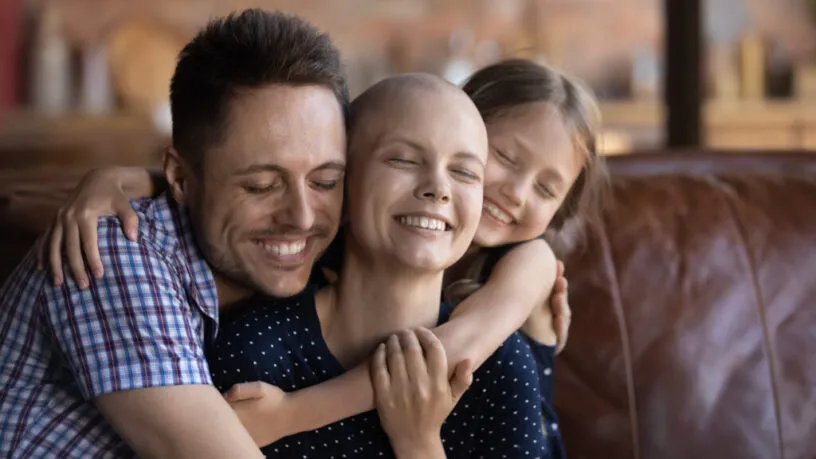Breast Cancer Awareness Month | Patient Perspectives

In honor of breast cancer awareness month, this blog features the experiences of two Medidata Patient Insights Board members diagnosed with breast cancer.
What is a piece of advice you would give to someone newly diagnosed with breast cancer?
Sheila: My advice would be to breathe and allow time to process. After you hear the words "You have breast cancer" it’s important to sit with it, and then move forward in trusting your medical team and most importantly, yourself. There is no right or wrong way to fight cancer. We’re all navigating cancer the best way we know how. We don't know what we don't know so ask your care team a lot of questions about your diagnosis, care, treatments, and trials.
Anne Marie: Don’t rush to make treatment decisions. While our instincts are screaming “get it out, YESTERDAY!” only the rarest cases require an immediate plan (for example: inflammatory breast cancer). Ask questions about your options and determine what is best for your circumstances. Seek help in formulating these questions by connecting with others—there are many groups and organizations. As an example: Friend for Life is a non-profit that matches patients to those who’ve been on a similar path and might help with question formulation.
How has the healthcare landscape changed since you were first diagnosed with breast cancer?
Sheila: The healthcare landscape has changed significantly as I see more involvement with diversity and inclusion. Initially when I was diagnosed in 2009, I didn't know any black women who were also diagnosed with breast cancer and there were not many black women in commercials or marketing materials. Now, there are more organizations recognizing the call to action and the need to be inclusive in everything we do—from literature to standard of care to clinical trials.
Anne Marie: The research being done is acknowledging the “collateral damage” associated with breast cancer treatments. In 2006 when I was diagnosed, quality of life issues were discussed but little was being implemented. I suffered serious cognitive issues that worsened three years after I was successfully treated. Today, all sorts of toxicities are being studied and I’d like to think it was because patients were (and are) expressing the challenges and that patients drove the change.
You have the microphone for the world. What do you want to tell industry and other stakeholders about breast cancer?
Sheila: We need to tell industry and stakeholders to get more patient advocates involved from the inception of research through the development of treatments—especially within clinical trials. I was diagnosed with Stage IV DeNoVo and I didn’t know anything about my diagnosis, nor what my next steps would be in my treatment. I ask stakeholders to make sure patients have all the information needed to navigate through this disease in the best possible way—from mental health to making sure that patients receive financial assistance if needed. Many patients fear asking for help and don't know who to seek support and information from.
Anne Marie: Breast cancer is not “the good cancer.” No cancer is a good cancer. I was unprepared for the depth of the emotions I had to navigate, and sometimes still navigate. Don’t be afraid to tell your doctor or healthcare team you need help. They may be able to guide you to someone who has experience to address specific issues with which you might be struggling.
Explore Related Articles
Contact Us

